- Home
- Research
Quantified Research evidence for Joudry Sound Therapy
Since the development of the Tomatis method over 60 years ago, a large and growing body of research has been made available. Below is a brief summary of research results on Joudry Sound Therapy. See the links on this page for our full collection of research papers including external sources.
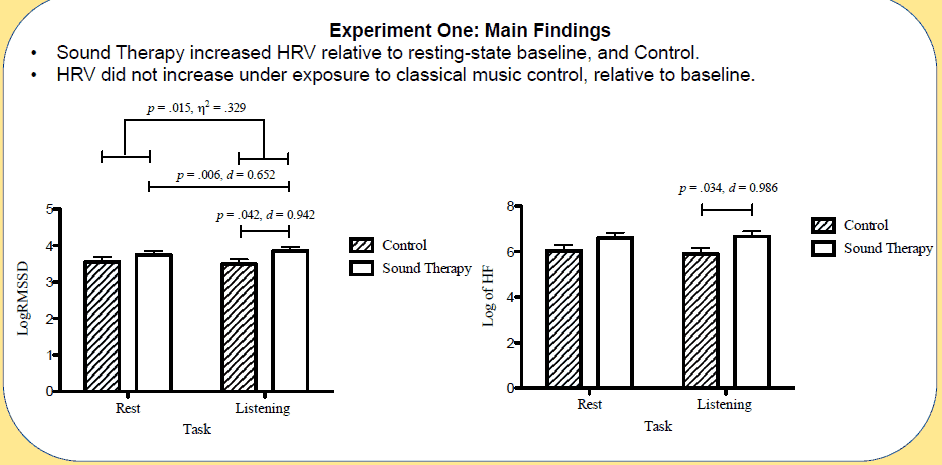

Conclusions
- Participants who were acutely exposed to Sound Therapy showed improvement in well-established measures of vagal regulation, over and above participants who were exposed to a classical music control.
- Taken together, the increases in HRV (Heart Rate Variability) induced by Sound Therapy and the null effect of classical music on HRV support the notion that exposure to balanced levels of high and low-frequency sound causes increases in HRV. The long term effects of Sound Therapy on HRV and psychological wellbeing remain unclear.
- Sound Therapy induced changes in HRV give insight into the link between the MEMs (Middle Ear Muscles) cranial nerves and the heart
(University of Sydney Pilot Study Poster)
Sound Therapy International Listener Survey
This self-response survey was sent to 600 Sound Therapy listeners after six months of listening over a three-year period. Out of approximately 400 total respondents, 139 had tinnitus and completed the program as required.
Tinnitus and Hearing Results
- 86% of tinnitus sufferers overall benefited from the method.
- 86% reported reduced stress, anxiety and sleeplessness associated with the tinnitus.
- 45% experienced a reduction in the noise level and 7% found their symptoms were completely gone.
- Of hearing loss sufferers, 56% reported improvement.
Improvements were observed through changes on audiograms, decreased volume required on music player or TV, being able to hear better in noisy environments, on the phone or when the speaker had their back turned. Such changes made a significant difference to the person’s life.
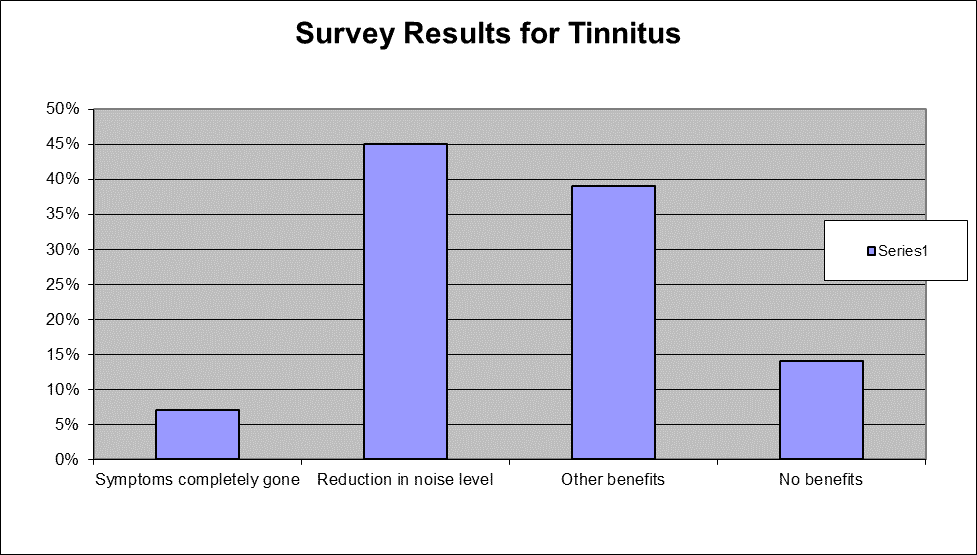

Independent Tinnitus Trial
Eric Jordan, a UK based audiometrician treated 200 to 300 tinnitus patients over a 2 year period and observed that 90% of patients benefited. Though not a formal study, this nevertheless constitutes objective, clinical observation of patients using the method in their day to day lives by a practitioner interested and experienced in the tinnitus field.
General Wellbeing Results
All respondents to the Sound Therapy International survey were asked in which conditions they had experienced improvement
- 90% reported improvement in at least one condition, but most had multiple areas of improvement. See chart and table below.
- 86% had reduced tinnitus
- 56% had improvement in hearing
- 84% had improvement in energy
- 86% had reduced stress
- 75% had improvement in sleep
- 78% had improvement in communication
- 70% had improvement in dizziness
- 64% had improvement in speech problems
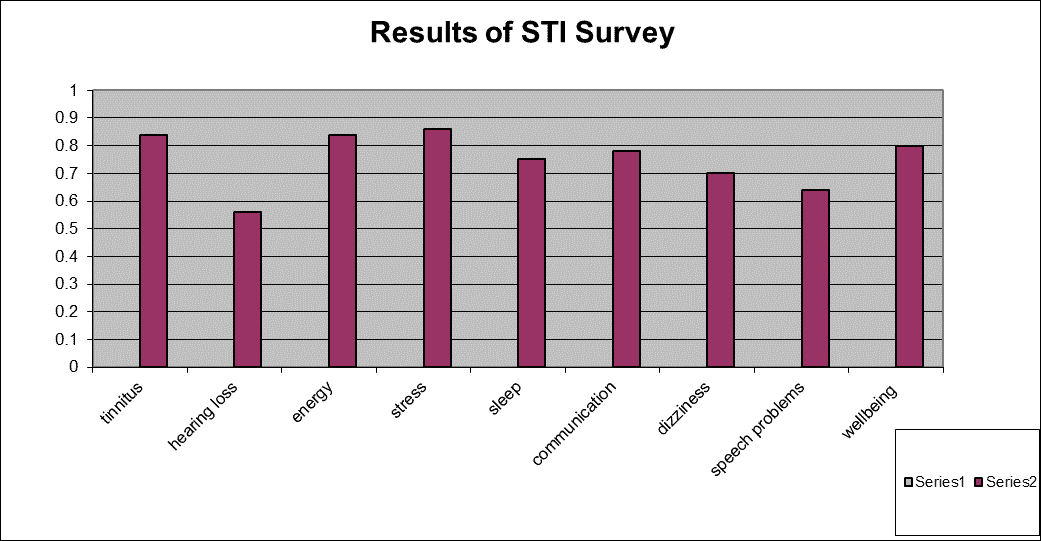

| Condition | Percentage that reported improvement | Sample size |
|---|---|---|
| Tinnitus | 86% | 187 |
| Hearing loss | 56% | 123 |
| Energy | 84% | 122 |
| Stress | 86% | 80 |
| Sleep | 75% | 127 |
| Communication | 78% | 71 |
| Dizziness | 70% | 30 |
| Speech problems | 64% | 14 |
(Evidence for Joudry Sound Therapy)
Sound Therapy International Tinnitus Response Survey results
We conducted a survey of our tinnitus listeners in which 130 participants participated in a six month survey. Participants answered questions monthly about the effect tinnitus had on their wellbeing in a variety of ways, and how Sound Therapy affected these responses.
Based on scientific measures known as the Tinnitus Reaction Questionnaire (TRQ) and the DASS, (a standard measure of stress and wellbeing) the survey addressed the effect of tinnitus and the impact of Sound Therapy on irritability, tiredness, effect in a quiet room, relaxation, concentration, interactions, responsibilities, leisure time, general happiness, sleep, ability to ignore tinnitus, discomfort, loudness, frequency (how often heard) , energy, endurance, vitality, rest, recovery, alertness, mental energy, worthiness, confidence, mood, having a positive approach to life, optimism, drive, reaction, resilience, coping, pressure in the ear, and dizziness.
40% to 50% of the participants reported a positive improvement to over 80% of the questions.
A reduction in ear pressure and dizziness was reported in only 30% of cases, primarily because not all participants experienced these problems.
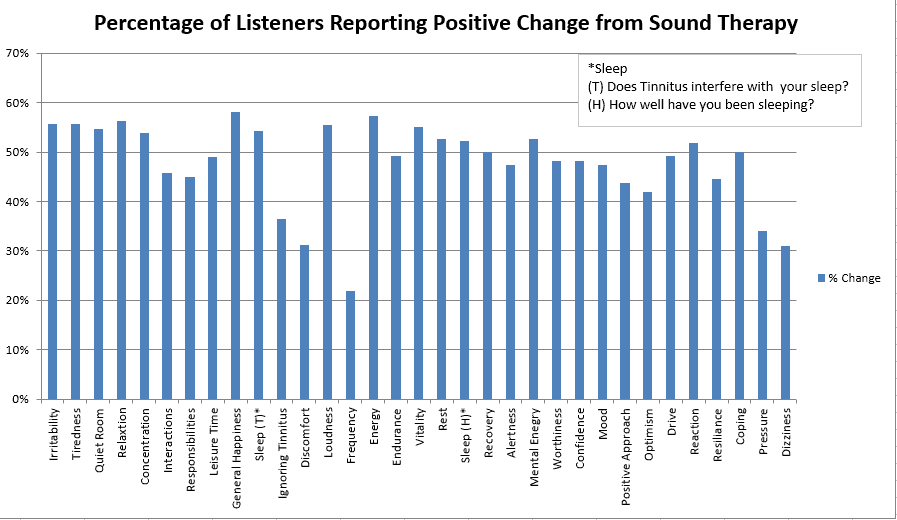

Sound Therapy for the Learning Disabled Child
Rintel, Brisbane 1995
A sixteen week double blind study of 6 children plus a control of 5. The experimental group had Joudry Sound Therapy while the control group had normal, unfiltered classical music.
Five normed tests were administered before and after treatment. These were chosen for their familiarity, accessibility and reliability:
- Test of Auditory Discrimination (TAD) Goldman-Fristoe-Woodcock. (AGS 1970) Revised 1976 using a standard audio cassette.
- Neale Analysis of Reading Age (Neale 1988).
- Neale Analysis of Reading Comprehension (Neale 1988).
- Westwood Spelling (1979)
- S I Graded Spelling Test A Schonell (1967)
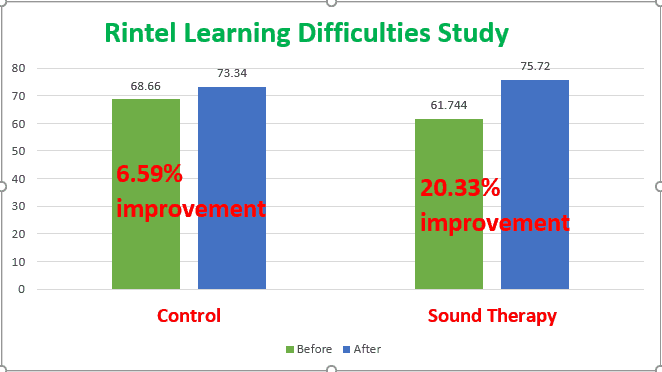

Result
The chart shows a comparison of improvement in mean scores for all tests combined. The Sound Therapy group showed an overall improvement of 20.33% while the Control showed only 6.59% improvement.
(Sound Therapy for the Learning Disabled Child Rintel)
Sound Therapy Study on Asian Nurses Studying for Australian Nursing Registration
The subjects were sixteen mature aged Asian nurses who suffering severe stress due to cultural change and pressure to learn English in order to pass Australian nursing exams to be permitted to stay in Australia. With very limited, fossilised English, the students were struggling greatly with the English requirements.
In this nine week study, subjects listened to Sound Therapy for three hours per day and reported on perceived improvements.
When the women arrived here, they were profoundly traumatised. Some had never left their home town before. Most had never lived alone before, and had been greatly dependant on family and community. Most had left behind husbands and children. They suffered extreme home sickness.
Many had borrowed huge sums of money. All were shocked to find out that their English was worse than they thought. They were obsessed by the fear of failing their exams and having to return to their countries, greatly in debt, and struggling even more than before to support their children.
Results
At the end of the period most students reported sleeping better. Many improved in reading & listening comprehension & were able to extend their concentration span. Some heard more clearly & understood more spoken English. Some developed a love for the music, radically different to their own, and linked this with increased happiness.
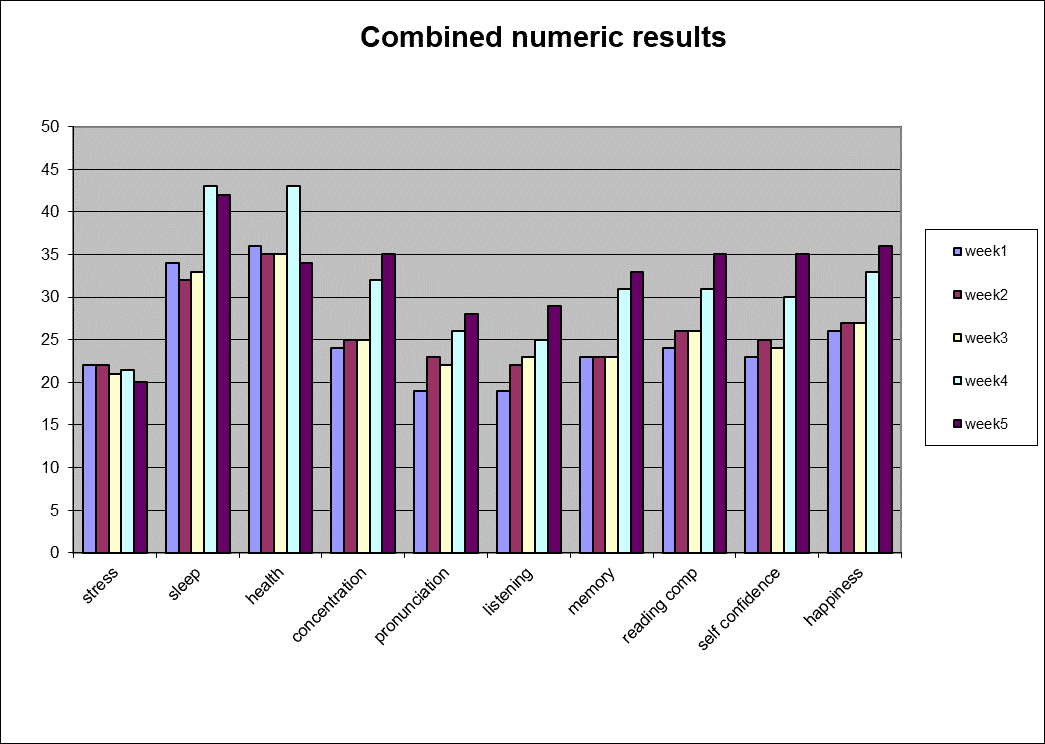

(Study on Asian Nurses Studying for Australian Nursing Registration)
Start Getting Relief Today
Click here to choose your package






